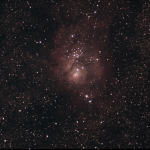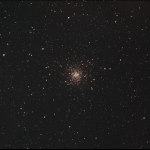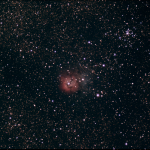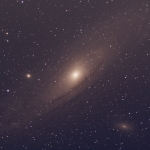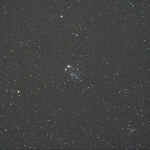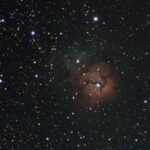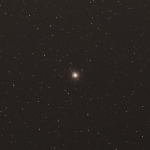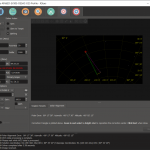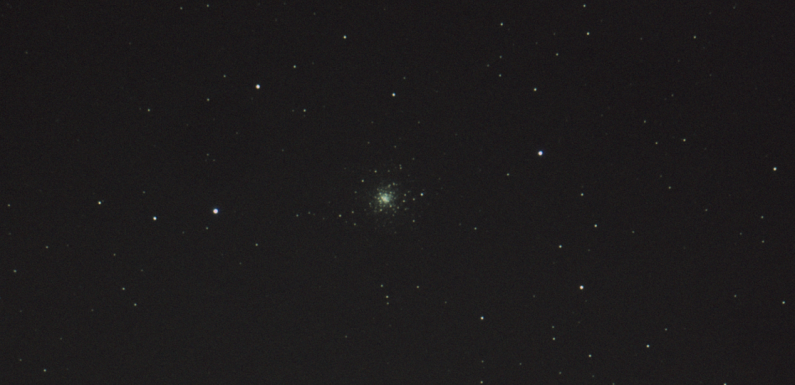
It did not look good earlier in the day, but the forecast said it would clear so I set up the gear just before dark. The forecast was right! By 6:30 or so the skies were nice an clear. It was a bit breezy and cold, but not as cold as it has been. Captured some galaxies, open clusters, globular cluster, and planetary nebula. The most objects I have observed in a single night – at least recently.
I had some difficulty with my gear and INDI during set up. First I kept losing connection to the SV305, turned out to be the USB cable was just not seating in the camera, replaced the cable and that was sorted. Then INDI kept trying to use the serial connection of the GPS module to connect to the mount, not sure why. That one took me a bit to figure out. There is a setting in the INDI Control Panel to select the device the mount should use, once I selected the correct USB to Serial device things started acting as they should. Once I had these issues sorted I had a great EAA session.
All these EAA images were capture with my SV305 Camera through my Astro-Tech AT66ED and live stacked using SharpCap Pro. The mount and cameras are remotely controlled with KStars/Ekos/INDI running on an Astroberry Raspberry Pi.
Even with the bright nearly full Moon, I was able to observe some nice faint objects. M77/NGC 1055 and M79 are my favorites from the night. I am also really digging M46 and the planetary nebula NGC 2438.
M77 a barred spiral galaxy and NCG 1055 an edge on spiral galaxy in the constellation Cetus. A live stack of 50 x 15 second exposures at 400 gain.
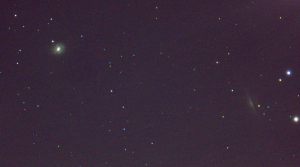
I had tried to capture these the other night with out success. Glad I revisited. M77 is only about 47 million light years away and NCG 1055 it’s only about 52 million light years out.
M74 or the Phantom Galaxy is a large spiral galaxy in the constellation Pisces. A live stack of 50 x 15 second and 10 x 20 second exposures at 400 gain.
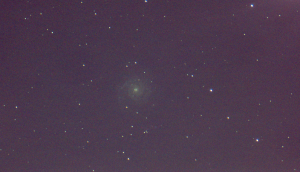
M76 – The Little Dumbbell Nedula a planetary nebula in constellation Perseus. Live stack of 30 x 20 second exposures at 400 gain.
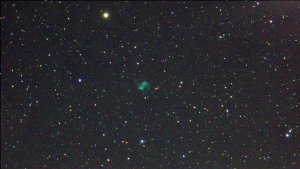
M52 – Open Cluster in the constellation of Cassiopeia. This one I have captured before, but it was a good revisit. Live stack of 30 x 20 second exposures at 400 gain.
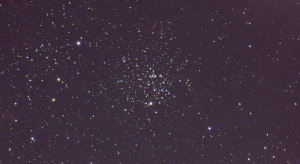
M50 – Open Cluster in the constellation Monoceros. Live stack of 30 x 20 second exposures at 400 gain.
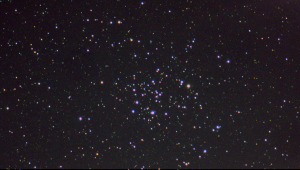
M44 – The Beehive Cluster an open cluster in the constellation of Cancer. Live stack of 50 x 10 second exposures at 400 gain.
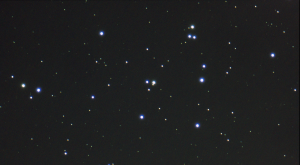
M46 Open Cluster in the constellation of Puppis. There is a planetary nebula in this cluster, NGC 2438. Live stack of 30 x 10 second exposures at 400 gain.
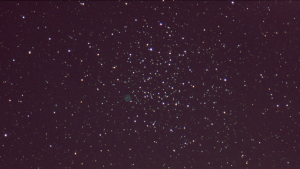
M108 a barred spiral galaxy in the constellation Ursa Major. Live stack of 45 x 20 second exposures at 400 gain.
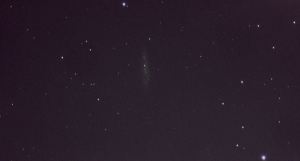
M97 or the Owl Nebula a planetary nebula in the constellation Ursa Major. Live stack of 45 x 20 second exposures at 400 gain.
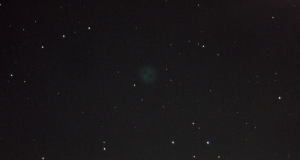
M109 a barred spiral galaxy in the constellation Ursa Major. Live stack of 60 x 20 second exposures at 400 gain.
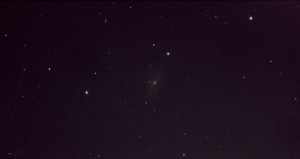
There is a second faint, yet to be identified, galaxy in the upper right of the FOV.
M41 an open cluster in the constellation Canis Major. Live stack of 30 x 10 seconds at 400 gain – something happened and 2 frames were ignored so only 28 exposures stacked, I there was a couple gusts of wind.
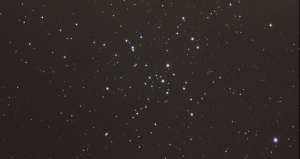
M79 a globular cluster in the constellation Lepus. Live stack of 30 x 10 second exposures at 400 gain.
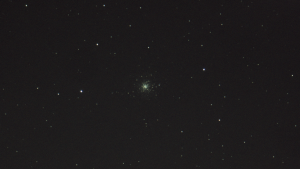
This one is definitely one of my favorites from this EAA session.
M47 an open cluster in the constellation of Puppis. Live stack of 30 x 10 second exposures at 400 gain.
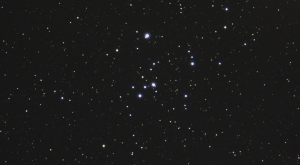
I did make an attempt a M101, the Pinwheel Galaxy, but it was too low in the sky and there was a lot of light pollution in it’s direction. I also think there may have been some thin clouds in that direction (NE). Tried a couple of times but just could not resolve it.
At around midnight I packed away the gear. Another 12 objects (I capture 13, but I already have M52) to add to my Messier Log.
Enjoy.

